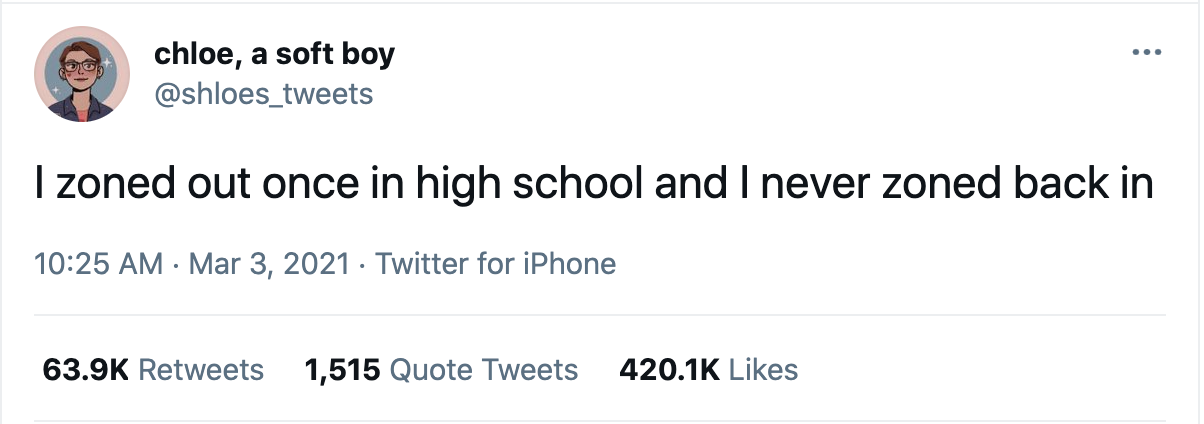From creepy DMs to reposted content, here’s how a simple tweet becomes a meme
You’ve seen them without even thinking about them: screenshotted tweets reposted as memes across Instagram and Facebook.
Imagine University of Ottawa theatre student, Chloe VanGroningen’s, surprise when she stumbled across one of her own tweets on Facebook.
“It was surreal,” said VanGroningen in an interview with the Fulcrum.
The tweet itself is fairly innocuous: “I zoned out once in high school and I never zoned back in.”
As banal as it may be, though, it’s garnered 420,200 likes and 63,900 retweets at time of writing. It’s VanGroningen’s most far-reaching tweet by far.
“It gained traction really, really fast, and has made me much more careful about what I post,” said VanGroningen.
“The tweet’s been translated, and it’s shown up on TikTok and Facebook. I had to explain it to my mom.”
Alongside the mass attention, those who check out VanGroningen’s tweet may notice some spammy-looking advertisements in the replies.
“I was shocked. People wanted to give me money just to link their products. I picked the most innocent-looking ones … and made about $150 over four days or so.”
Easy money aside, the tweet generated some negative experiences, too.
“People appeared in my DMs asking for pictures of my feet — among much more graphic requests.”
Since then, VanGroningen’s added about 200 new followers and continues to be baffled at just how quickly her tweet circulated.
“It’s just another example of the power of the internet — you have to be careful,” said VanGroningen.
In 2018, the Verge investigated this very matter of how tweets fossilize into memes across platforms. Twitter, a text-based platform, isn’t always the best suited for circulating image-reliant memes.
“For some meme creators, Twitter and Tumblr are a canvas, while Instagram is the wall where they display their work,” says Megan Farokhmanesh in the article.
“Success on one platform also doesn’t necessarily cross over onto others,” says Farokmanesh, explaining why VanGrongingen’s tweet might have been reposted by clout-chasing strangers looking to increase their Instagram presence.
Still, VanGrongingen’s moving forward with a renewed understanding of her platform.
“Things move fast, and I have more eyes on my online presence than I used to. It’s been a weird experience, but an educational one.”




